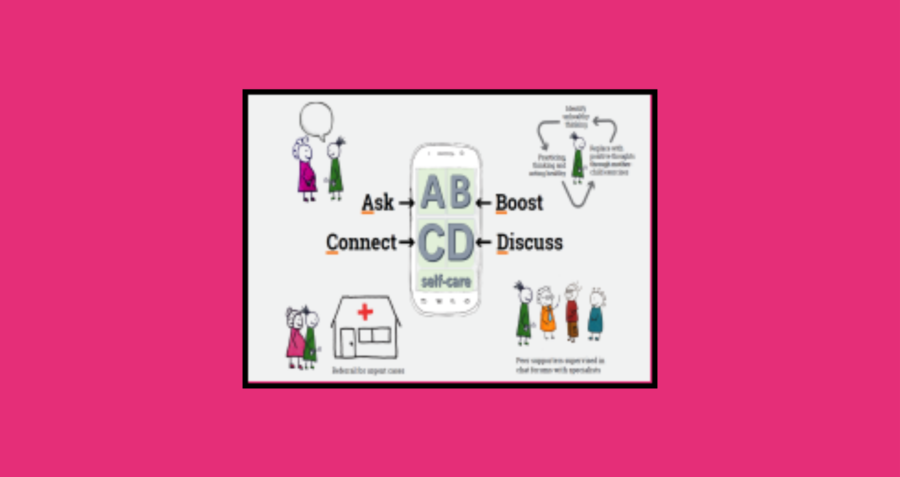ABCD (Ask, Boost, Connect and Discuss)

Key information
- Organisation: Paediatric Adolescent Treatment Africa (PATA)
- Country: Malawi, Uganda, Tanzania and Zambia
- Region: Eastern and southern Africa
- Stage of innovation: Stage 1: Idea generation
- Start date: May 2018
- End date: Oct 2019
- Type of innovation: Service innovation: new or improved service
- Budget: US$100,000
- Funded by: Bill & Melinda Gates Foundation
Summary of intervention
Young motherhood can put a strain on mental health, as can living with HIV. If you are a young mother living with HIV you are at particular risk of poor mental health. But there is very little support to help.
To address this, PATA has developed the ABCD app for young mothers living with HIV in Uganda, Malawi, Tanzania and Zambia, based on the WHO’s Thinking Healthy, cognitive behavioural therapy (CBT) intervention.
ABCD stands for: Ask (assessing psychosocial needs), Boost (CBT-based peer-led groups), Connect (linking young mothers to professional care), and Discuss (chat forums with peer supporters and professional advisors). It was developed with input from peer supporters, technical advisors and health providers and tested through peer-run support groups.
ABCD can be integrated into facility care. Its content can be adapted to context-specific differences and needs.
Around 80% of participants attended at least two-thirds of sessions. Young mothers developed positive thinking, discussed challenges, built their awareness of mental health, built their confidence, learnt coping skills and accessed additional healthcare.
ABCD has provided evidence of the scale of young mothers’ unaddressed needs. Gender-based violence was addressed by integrating ABCD into health services. Young mothers have also improved their adherence to antiretroviral treatment.
Learnings
- Peer supporters were asked to give feedback following each peer-group session. Common challenges included communicating clearly (46%), group facilitation while using an app (43%) and explaining practice work, such as the baby interaction charts (41%). These issues need to be addressed with further training.
- The management of ABCD by young peer supporters highlights the importance of partnering with young people in order to produce the final ABCD app, with their feedback critical to its development. Engaging and involving young peer supporters from the onset assisted in developing a feasible, engaging and effective application.
- While several facilities reported that in the beginning, the pilot programme caused delays in running activities in the facility, sessions were changed so they took place after health appointments, which addressed this concern. Facility staff’s views also changed positively over time through increased engagement with ABCD.
next steps
There is a need to take the pilot to scale and make further adaptations and improvements to the app whilst also undertaking a full costing analysis. But, to date, PATA has not been able to secure Phase II funding to adapt the ABCD app and expand the curriculum.

